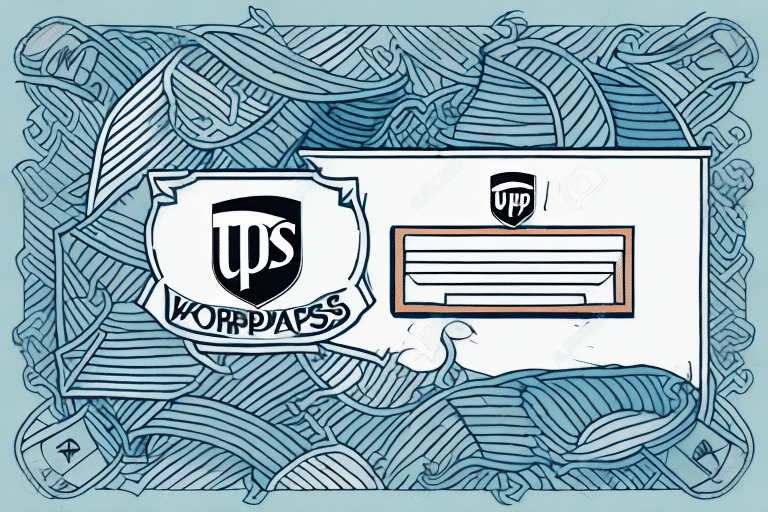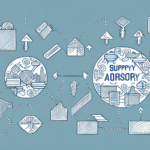Understanding ECCN Requirements for UPS WorldShip
Exporting goods overseas presents significant business opportunities but comes with strict regulations, notably the Export Control Classification Number (ECCN) requirement. This article provides an in-depth analysis of ECCNs and explores how UPS WorldShip facilitates compliance with these regulations.
What is an ECCN?
The Export Control Classification Number (ECCN) is a five-character alphanumeric code that identifies items subject to the United States export control regulations. Administered by the Bureau of Industry and Security (BIS) under the U.S. Department of Commerce, the ECCN determines the level of control required for export based on an item's technical characteristics and its destination.
Unlike Harmonized Tariff Schedule (HTS) codes used for customs duties, ECCNs specifically address export regulations. It's crucial for businesses to differentiate between ECCNs and HTS codes to ensure proper compliance and classification.
ECCNs are dynamic and may change with evolving technologies and geopolitical landscapes. Regularly reviewing your product's ECCN is essential to avoid non-compliance, which can result in severe penalties, including hefty fines and imprisonment.
Importance of ECCNs in International Shipping
ECCNs play a pivotal role in international shipping by:
- National Security: Ensuring that sensitive goods do not reach entities that may pose security threats.
- Intellectual Property Protection: Preventing unauthorized transfer of proprietary technologies and sensitive information.
- Regulatory Compliance: Helping exporters navigate complex international trade laws and avoid legal repercussions.
Compliance with ECCN requirements not only safeguards national interests but also maintains a company's reputation and operational integrity in the global market.
Determining ECCN Requirements for Your Product
Several factors influence whether your product requires an ECCN:
- Technical Specifications: Products with advanced or sensitive technologies may fall under specific ECCN categories.
- Intended Use: Items designated for military or dual-use applications often require stringent controls.
- Destination Country: Exports to countries under embargo or special control lists necessitate an ECCN and possibly an export license.
To accurately determine the ECCN for your product, consult the Export Administration Regulations (EAR) or seek guidance from a qualified export control specialist.
Understanding the Commerce Control List (CCL)
The Commerce Control List (CCL) is a comprehensive registry of items subject to ECCN classification. It categorizes goods, software, and technologies based on their potential military or strategic applications.
Exporters must verify whether their products are listed on the CCL by consulting the latest updates available on the BIS website. Even if an item isn't explicitly listed, it may still require an export license depending on its use and destination.
Additionally, exporters should review other relevant lists such as the Denied Persons List and the Entity List to ensure compliance with broader export control measures.
ECCN vs. HTS: Key Differences
Understanding the distinction between ECCN and Harmonized Tariff Schedule (HTS) codes is essential for accurate product classification:
- ECCN: Focuses on export controls governed by the U.S. government, determining licensing requirements based on national security and foreign policy considerations.
- HTS Code: Used internationally to classify imported goods for customs duty assessment, based on product descriptions and material compositions.
Misclassification can lead to delays, fines, and compliance issues. Therefore, businesses engaged in international trade must maintain clarity between these two classification systems.
Best Practices for ECCN Compliance
To ensure accurate ECCN classification and maintain compliance:
- Conduct Thorough Product Analysis: Understand the technical aspects and intended use of your products.
- Consult Experts: Engage with export control specialists or legal advisors to navigate complex regulations.
- Utilize Official Resources: Reference the CCL and EAR for authoritative guidance.
- Maintain Detailed Records: Keep comprehensive documentation of product classifications, export transactions, and compliance measures.
Adhering to these best practices minimizes the risk of non-compliance and fosters smoother international business operations.
Role of UPS WorldShip in ECCN Compliance
UPS WorldShip is an essential tool for exporters aiming to streamline their shipping processes while ensuring ECCN compliance. Key features include:
- ECCN Verification: Tools to accurately classify products according to the CCL.
- Documentation Management: Automated generation and maintenance of export documentation.
- Export Declaration Compliance: Simplifies the submission of required export information to regulatory bodies.
- Expert Support: Access to resources and assistance for navigating complex ECCN requirements.
By leveraging UPS WorldShip, businesses can efficiently manage their export operations while adhering to stringent regulatory standards.
Conclusion
Compliance with ECCN requirements is critical for businesses engaged in international shipping. Understanding the intricacies of ECCN classifications, differentiating them from HTS codes, and adhering to best practices ensures smooth and legally compliant export operations. Tools like UPS WorldShip play a vital role in simplifying this complex landscape, enabling businesses to focus on growth and global market presence while maintaining regulatory integrity.
Frequently Asked Questions
Who assigns ECCN classifications?
Answer: The Bureau of Industry and Security (BIS) under the U.S. Department of Commerce assigns ECCN classifications.
Does my product require an ECCN classification if it is classified as EAR99?
Answer: Products classified as EAR99 are generally low-risk and may not require an ECCN unless they are exported to embargoed destinations or used for specific purposes. It's essential to verify based on the entire export scenario.
How can I obtain help with ECCN compliance?
Answer: Consulting with export control specialists, utilizing resources from the BIS website, or using comprehensive shipping solutions like UPS WorldShip can aid in achieving ECCN compliance.






















